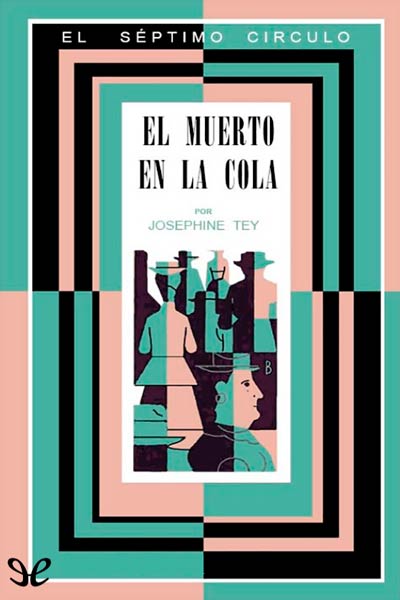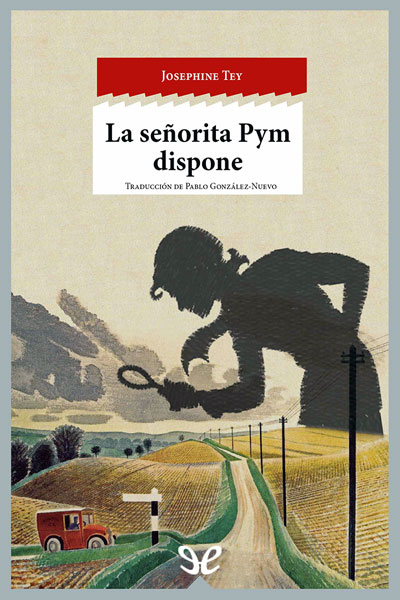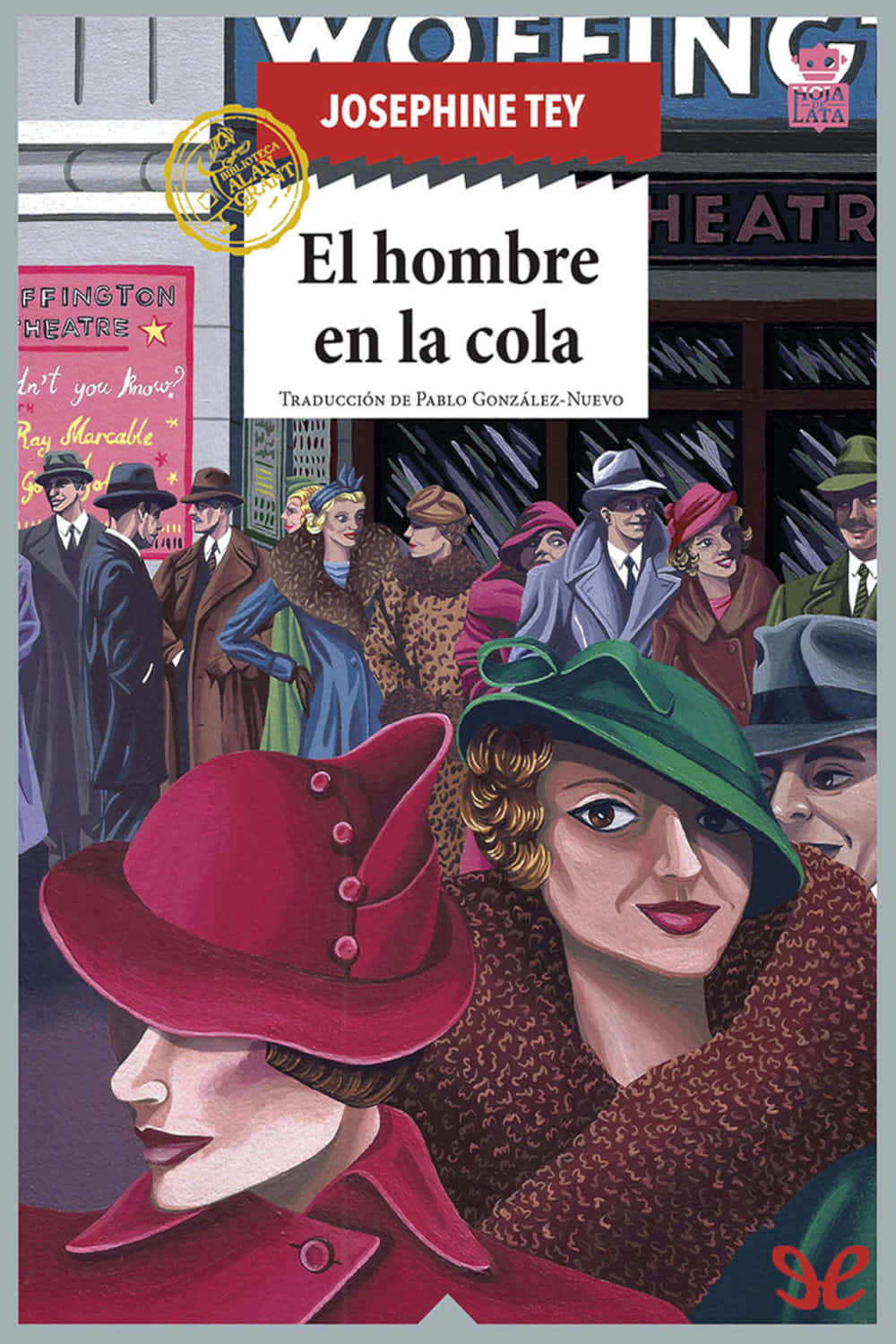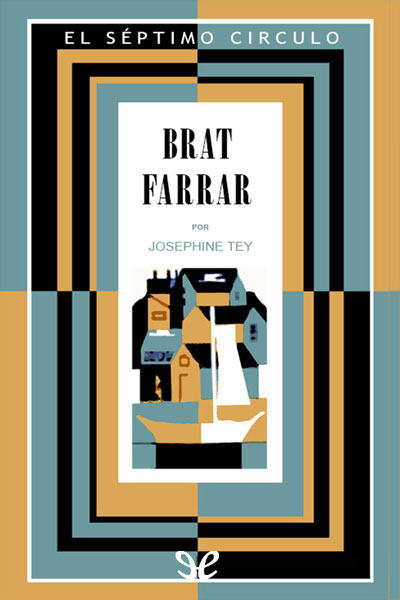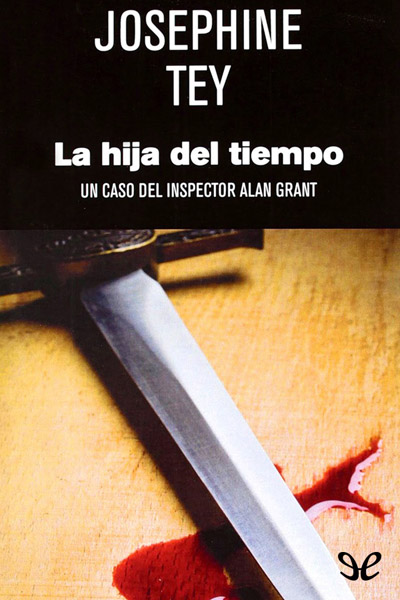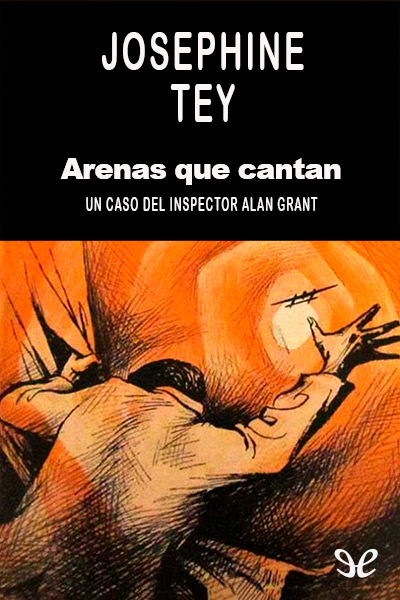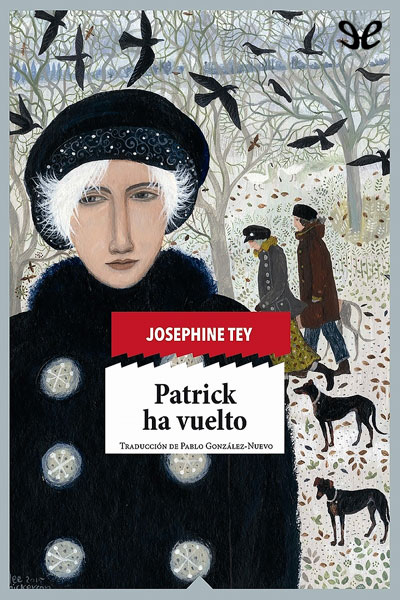oleebook.com
The Privateer de Josephine Tey
de Josephine Tey - Género: English
Sinopsis
Josephine Tey Year: 2022
Descargar
Descargar The Privateer ePub GratisLibros Recomendados - Relacionados
Reseñas Varias sobre este libro
This was a navel adventure story featuring legally recognized pirates. If you had legal authority to raid and plunder you were known as a privateer.
This book was Historical Fiction about the privateer Henry Morgan. His career started when Oliver Cromwell was still in power and ended when the Stuarts were back on the throne.
I can see why this story often gets over looked or forgotten. This was a book outside of Tey's usual genre. And often when a writer does something "new" and it isn't a big success it often gets glossed over.
Give this story a try if you Navel History around the time of The English Civil war.12 s Galowa62 2
The Privateer, by Josephine Tey (aka Gordon Daviot, aka Elizabeth Mackintosh) is a "worthily embellished" chronicle of the life of Sir Henry Morgan during his years as a privateer. Morgan was an indentured Welshman before he was mustered out, becoming a privateer out of Jamaica and eventually its Lieutenant Governor. It's a fantastic, well-researched read, chock full of interesting details pertaining to the history and bizarre international politics of Morgan's period, as well as the warcraft, sailing, and political intrigues of early colonial times in the West Indies.
Tey is incredible, and frankly, writes a man here, bringing the added benefit of the insights of a woman... Perhaps I should say Tey writes men here the way DH Lawrence wrote women. She is able to evoke the subtle bonds that form between men, especially at sea, in ways that non-seagoing souls and women can also understand and appreciate. On a good ship, with a strong, fair, well-regarded captain, there can exist a unique comaraderie and a powerful culture of loyalty, creating a very tight community. Tey captures it.
The Privateer had me on the edge of my seat or amused (and at times howling with laughter) on nearly every page. And it's nautically authentic without being as terminologically overpowering as some readers have found RH Dana's book, Two Years Before The Mast, to be.
There's a wonderful scene in which Morgan is essentially playing chicken with a huge Spanish gunboat, jockeying for position as he prepares to board and take the Spanish ship. Morgan's friend and first officer looks into the mouths of the massive Spanish ship's long line of cannon and says: "Dear Christ, I wish I'd lived a better life..."
At one point Tey, describing a rainstorm at sea, writes: There was... "a solid weight of rain that was the emptying of buckets. It was not rain at all, as the term is understood. The skies just turned to water and fell down." For her descriptive writing alone the book is definitely worth checking out. It's even free to read online, if that interests you.
https://www.onlinereadfreebooks.com/e...4 s Morgan McGuireAuthor 4 books21
Tey again attempts to set the popular historical record straight for a maligned figure, as she did in The Daughter of Time.
The Privateer is told straight and cleanly: linearly in time, from the perspective of a single character, and largely as a YA-style tale that belies her research and some of the complexity that sneaks in. It goes past quickly and is thrilling.
Henry Morgan is an almost strictly heroic and romantic figure in her telling. The capers are fun, there's lots of real-life swashbuckling, and the supporting characters are well drawn and well motivated. It is kind of a happy, closer-to-real-life Aubrey-Maturin (Master and Commander) without [sadly] the sailing details or length. His friendships are lifelong and true, his plans nearly always work, and even his enemies respect him.
What makes the book excellent, but painful to read at times, is that Tey doesn't shrink from the ugliness of slavery inherent in any Caribbean story. This includes the specifically racist version of black and indigenous slavery for plantations. Morgan is kind and heroic to European friends and foes, but is an unapologetic slave owner and dealer. What makes him the "good guy" in his own perspective is that he doesn't treat captured white Europeans the way that slaves are treated, and the Spanish are the "bad guys" because they treat all captives equally horribly. That's not much to brag about for poor Morgan's ethics, and Tey skillfully lays this out without leaving Morgan's viewpoint or giving him an ounce of introspection on the topic.
3 s Kori41 3
the life of Henry Morgan, the man behind the rum. Morgan was a great leader, not the blood thirsty pirate that Exquemelin painted him to be. Many books have been written about him, even Steinbeck took a turn at the legend in his first novel Cup of Gold. Body builder Steve Reeves also played him in Morgan the Pirate. Tey does a great job of capturing Morgan the man. Well researched, it is a great read for all those that love pirate adventures; read great accounts of Morgan's sack of Maracaibo and his amazing capture of Panama, the greatest pirate feat of all time!!! Hard to find new, but worth picking up if you find it in a used bookstore.3 s Keith Boynton201 2
A splendid book, swashbuckling and witty, with fine lyrical flourishes and enough pathos to give it depth. Henry Morgan emerges as a dashing and fascinating figure, vain and flawed and heroic to his core.2 s Philip236 14
This is a fascinating attempt by Josephine Tey to bring alive the sometime-historical, sometime-fantastical story of Henry Morgan (1635-1688). Tey, a pseudonym for Elizabeth MacKintosh (also published under the pseudonym Gordon Daviot) is one of my favorite fiction authors of the mid-20th century (particularly of mysteries) so I've been slowly finding and working through her lesser known, harder to find works ( this one). In this work of historical fiction, she brings a sympathetic and humane view of Morgan the privateer into her work, over against the renegade and barbaric pirate that an inventive former shipmate Exquemelin portrayed in an earlier fanciful publication (which Morgan successfully sued against for libel). One thing that should be addressed-Morgan was a slaveholder, his contemporaries, and the book includes some clearly racist perspectives that seem to be Morgan's, but at times are unclear whether they are also Tey's as she doesn't necessarily commentate upon them, though it's worth noting that there isn't much of this in her other works, apart from an occasional pejorative slur or two in common usage at the time. Not excusing any of this, just worthy of note.fiction1 Nicholas Martens107 4
I don't really know what to make of this novelization of the life of Henry Morgan. The narrative reads as a series of exploits, in the form of "this happened, and then this happened..." To be sure, Morgan lived an exciting life, but in Tey's hands, it's not excitingly told. Tey, who is usually so original in her approach to storytelling, struggled, it seems, to find a point of view. At the very end, my impression was that her intent all along had been to rehabilitate Morgan's reputation against the slander of his detractors, much as she had done for Richard III in The Daughter of Time. Alas, her skill as a mystery writer wasn't to be matched in the world of shot and sail.
For further reflections on the life and career of Henry Morgan, I'll want to read Rafael Sabatini's Captain Blood or Steinbeck's Cup of Gold, since, when it comes to deeds of derring-do, those authors have never failed me yet. 1 KatAuthor 1 book23
I really enjoyed this account of the life of Henry Morgan, a bold and dashing privateer and leader of men. It's always a tricky business for an author, to write a story about a real person: it has to work as a story, but it also ought to be fairly accurate. Tey does an excellent job, I think, of balancing the needs of an adventure story with the need to be truthful. The book gets a little summarize-y at the end, but, dealing with such an eventful life as Morgan's, one can forgive the author for that. I highly recommend this book!nautical1 Vikas Datta2,178 135
Essential reading for anyone who has enjoyed Captain Morgan rum! Ms Tey brings to vivid life one of the greatest adventurers of any age and the turbulent era and setting he flourished in. Sir Henry has been much pilloried and though he lived in a cruel time, he wasn't that bloodthirsty as has been portrayed and remembered and this account may somewhat palliate. It is also a marvellously riveting work! 1 Jenne1,086 711 Shelved as 'didnt-finish'
I love Josephine Tey, I really do, but just, no.
Page 2 or 3 has this horribly racist thing that is put in there so casually that I can't even imagine what the rest of the book will be . 1 Marina E MichaelsAuthor 5 books1 follower
Fantastically fascinating
Josephine Try was a consummate writer and keen observer of human nature. She shows this in everything I've read that she's written. This book is another prime example of her skills.
My only critical comment is that the cover illustration of this Kindle edition is the insulting portrait from the inexecrable Exemeling's book and not the much finer portrait from Cruikshank's Life of Henry Morgan. S784
Jolly good read much of the time if you tales of pirate (technically privateer) adventures, but the pacing felt uneven and I found my attention wandering during the slower bits. You do get a good sense of the man and what an extraordinary and daring leader of military adventures he was. Really 3.5 stars. Rupert MatthewsAuthor 359 books36
A great historical romp of an adventure story. This book is a novelised version of the career of the might Sir Henry Morgan who terrorised the Spanish in the Caribbean in the later 17th Century, secured Jamaica for England and ended up being knighted. A wonderful read.
NB - I have the version sold under the author's name of Gordon Daviot, which Tey sometimes used. Colin Whittaker55
An easy read. Not too deep. Avril448 17
Oh dear. I love Josephine Tey's mysteries. I enjoy reading about her as a character in Nicola Upson's series. But I shouldn't have bothered with this historical novel. It's made me think less of her.
The novel is about Henry Morgan, privateer and admiral. I am sure that in the 17th century people him did believe in the superiority of the European over all other 'races' and the superiority of the English over all other Europeans. My trouble is that from reading this book I'm not sure that Tey disagrees with them, and what was understandable in the mind of a 17th century man is extremely off-putting when written by someone in the middle of the 20th.
I should have been warned at page 3: "He topped it off with the usual rum, and sat, gorged and amiable, playing with the black babies who rolled at his feet in the dust. They were very beautiful, the babies; fat and merry. One had found a drooping scarlet flower and had stuck it behind his ear in imitation of the local bloods. His innocently rakish eye, together with the coquettish bloom, enchanted Henry, and he laughed aloud. Which had the effect of recalling him to his own purposes. He reminded himself that enchanting black babies grew up to be stupid and unreliable adults of uncontrolled imagination and invincible laziness, and having by this sternness detached himself from their infant wiles, he took his bundle and sauntered on into the town."
These are Morgan's thoughts, but there's no hint anywhere that Tey disagrees with him, and I don't want to read a novel by an author who believes that Africans are stupid, unreliable and lazy. Let alone the portrayal of the English as stalwart and true when compared with the perfidious Spanish! It's all just a bit too Boys' Own for me.
So, I'm sorry I read this. I'll now put it out of my mind as quickly as possible so that I can continue to enjoy Tey's other books.historical-fiction Theresa134 8
This book caused me a lot of troubleI was very conflicted, reading it, but couldn't help going back to it every night. Josephine Tey has been a favorite author since I was a girl. Having read the rest of her books several times each, I was surprised to discover there was one I hadn't heard of. But hadn't gotten too far in before I understood why. There is not only some extremely distasteful 'casual racism,' as some other reviewers have noted, but also casual human slaughter in the interest of personal gain. Even though Tey makes a point of trying to cast her protagonist's unprovoked challenges and revenge attacks in the light of working in the interest of his country's colonial interests and she keeps him adamant about a certain ethical code, a privateer can't really be viewed as anything but a thief seeking loot with a government commission. Clearly she wants us to him and I had a hard time resisting it. The thing I really struggled with was trying to imagine whether my old friend Josephine shared his feelings or was just doing an remarkably skillful job of recreating contemporary sentiment. Caro1,428
I have no idea how historically accurate this might be, but I enjoyed the ride. HOWEVER, her casual portrayal of slavery is quite disturbing. Of course, in those times people chortling over what to call their two new little boy slaves might well have happened ("What are you going to call him?" "I hadn't thought about it. What are you going to call yours?" "Let us call them by two related names. You know. Castor and Pollux. Hengist and Horsa. Flotsam and Jetsam."), but having this conversation take place between the otherwise admirable Morgan and his delightful wife is just wrong, 1952 pub date notwithstanding. reed357 8
I only read half of this. I didn't know it was based on a real man. As other commenters have pointed out, there's a ton of casual racism. Usually I can deal with this as I think it's ridiculous to expect authors from earlier generations to somehow be attuned to present-day morality, but the slaves who are proud and grateful to be branded with their new owner's initials... I couldn't stomach it. a hooded figure from your friendly neighbourhood dog park257 39
What do you want for him? asked a man, indicating the Indian boy who, since black boys were beginning to be the rage, was allowed to walk at Morgans heel.
He is not for sale, Henry said, snubbing.
_Everything_ in this town is for sale.
Not now.
Now?
Not since half-past six yesterday evening, Henry said.
Half-past six? What happened then?
I arrived in town.This entire review has been hidden because of spoilers.Show full review Josephine596 8
A more than slightly uncomfortable read, sixty years on; I'll allow that here's very little racism in the novels written (officially) under the Tey pseudonym--this was written as Gordon Daviot. And I'm honestly not sure how much was the author's own opinion and how much the character's. But then if we can separate Orson Scott Card's opinions from that of his writing, surely we can do so here?library-book Cel Jel721
What a rollicking tale. Interesting to question how much is correct, but Josephine Tey wrote a book that was entertaining to read, and gave me some extra insight into the privateers, and the British Spanish interplay. Nicole684 21
Autor del comentario:
=================================
